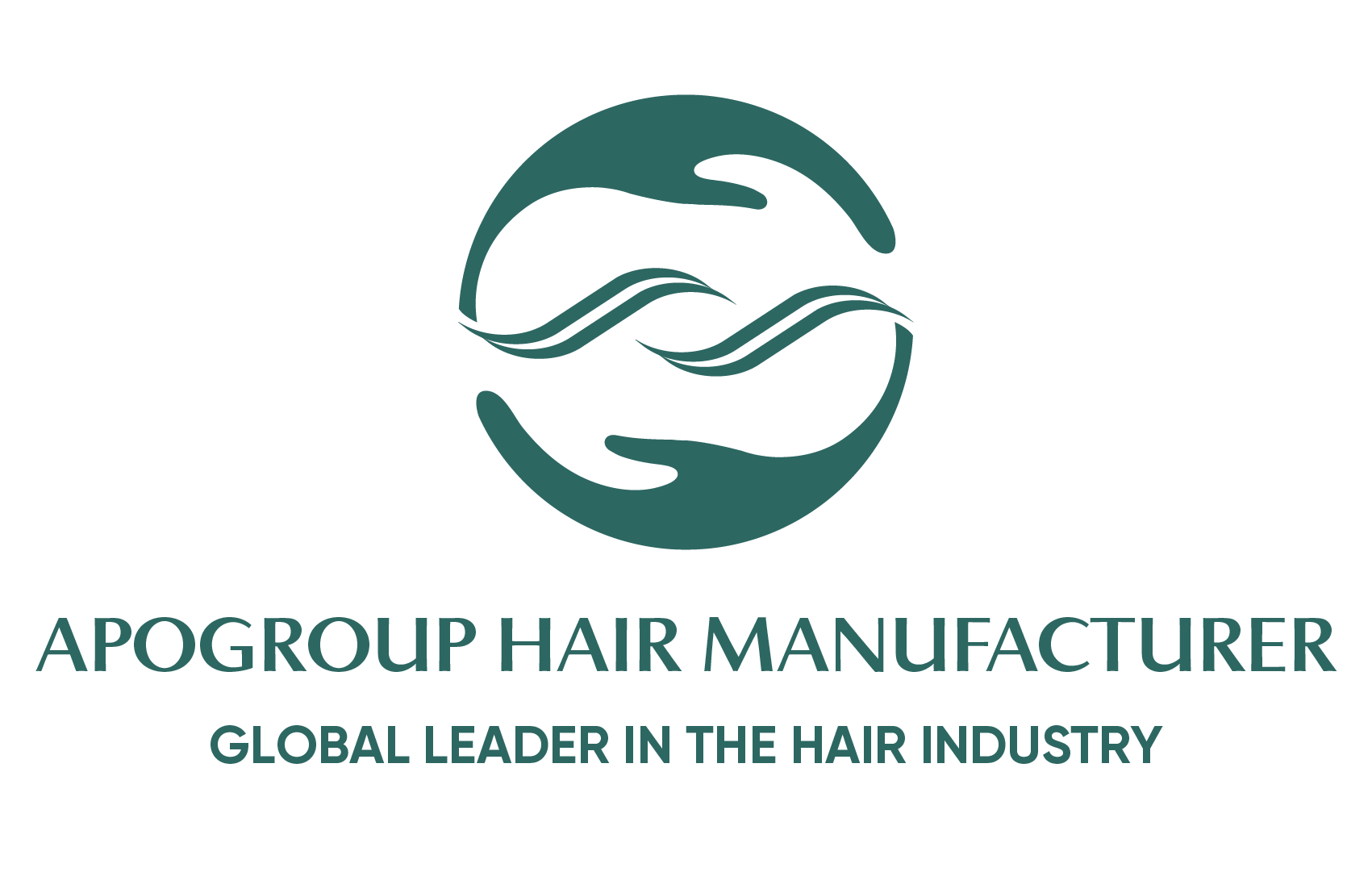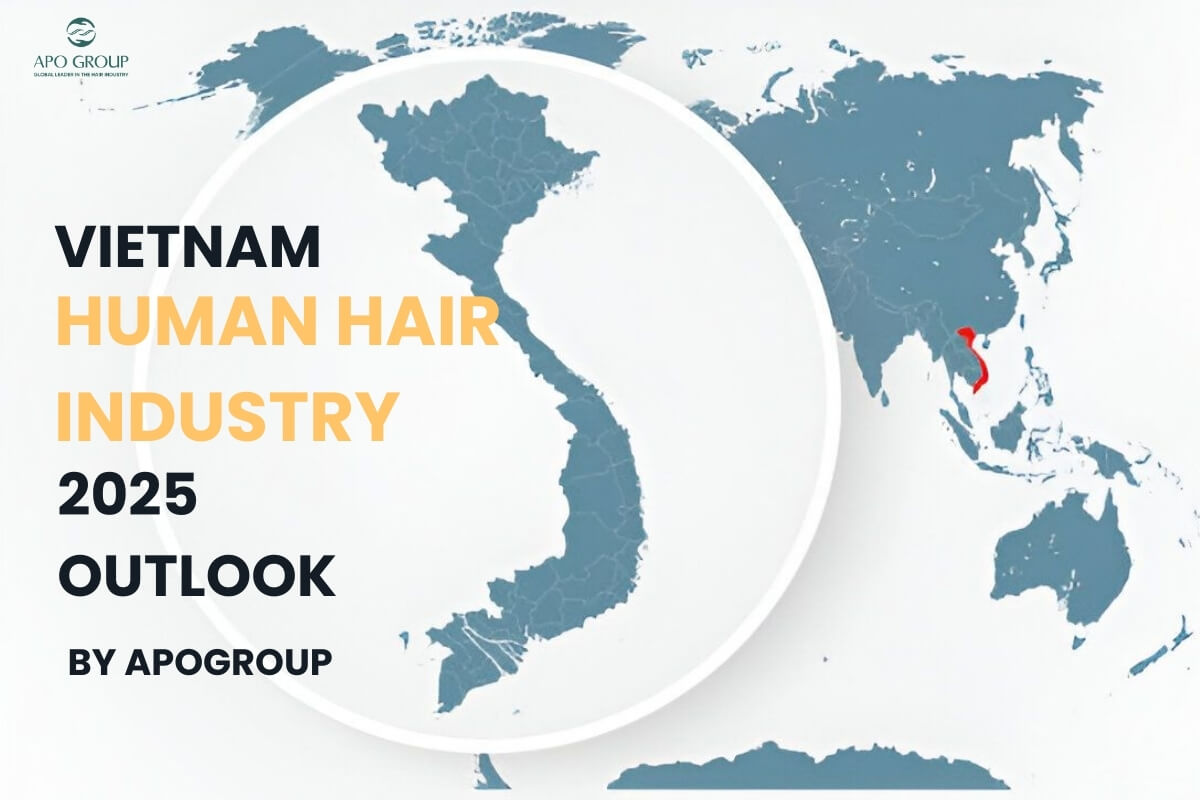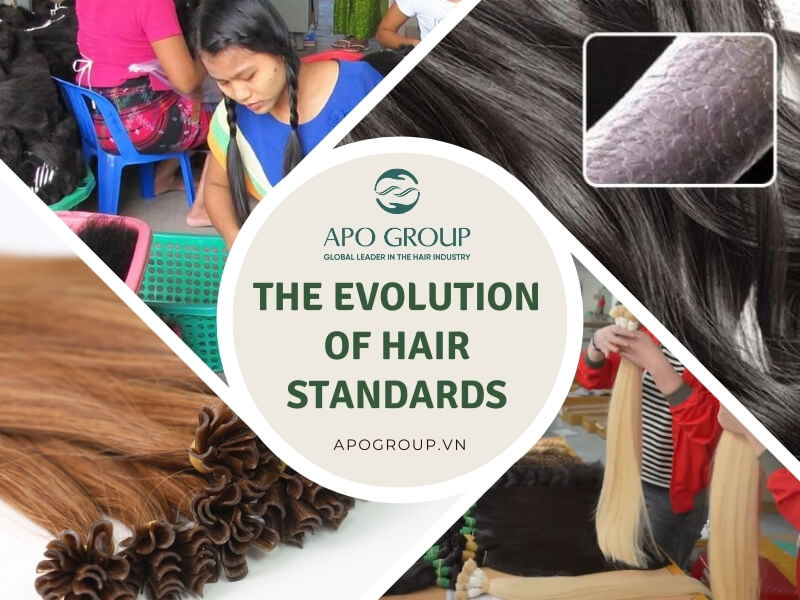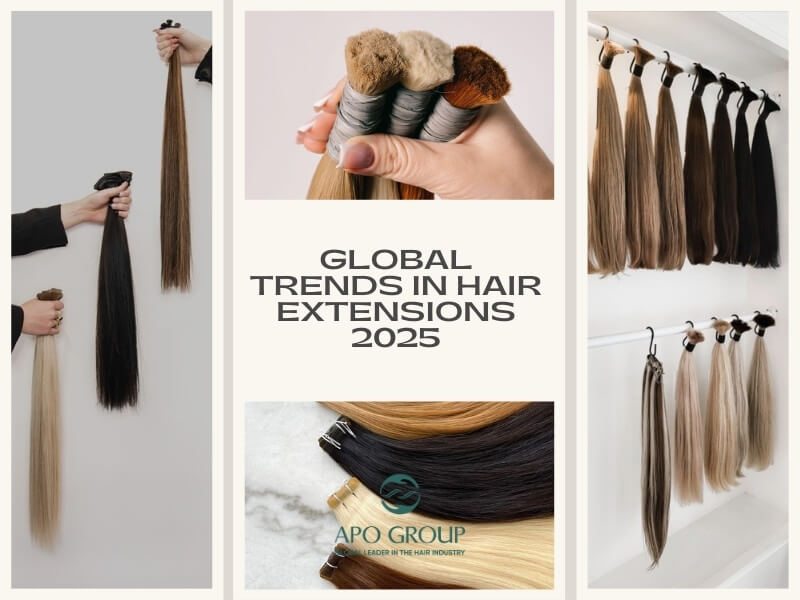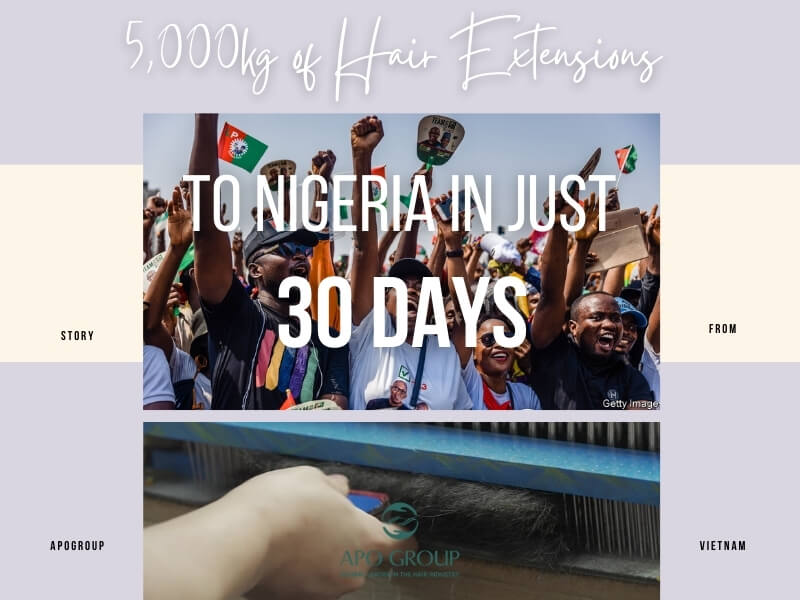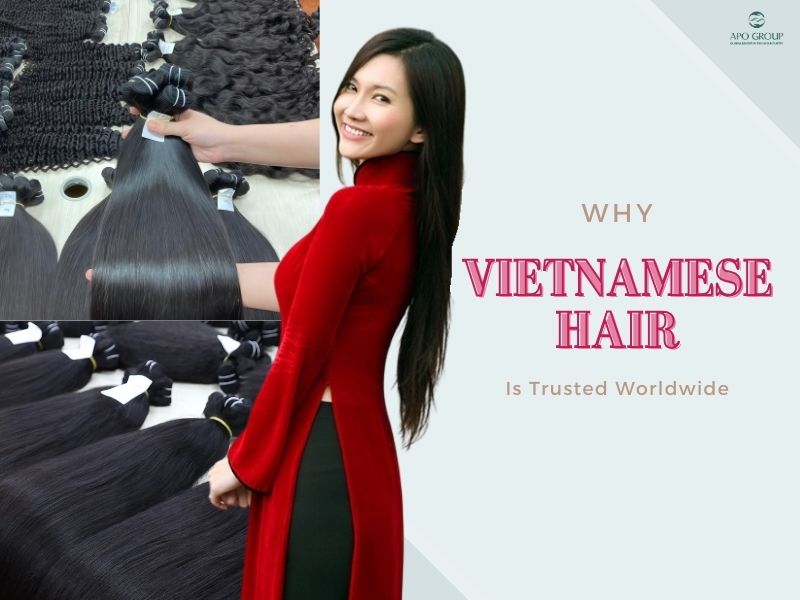Exporting hair extensions sounds straightforward, but behind every successful shipment lies a complex process of logistics, customs, and compliance. With over a decade of export experience, APOGROUP has learned that the key to success lies not in avoiding challenges, but in mastering them. By building expertise, creating strong logistics partnerships, and maintaining global compliance, APOGROUP has turned potential risks into opportunities. In this article, we share those lessons – offering insight into the difficulties of exporting hair extensions and how APOGROUP consistently overcomes them.
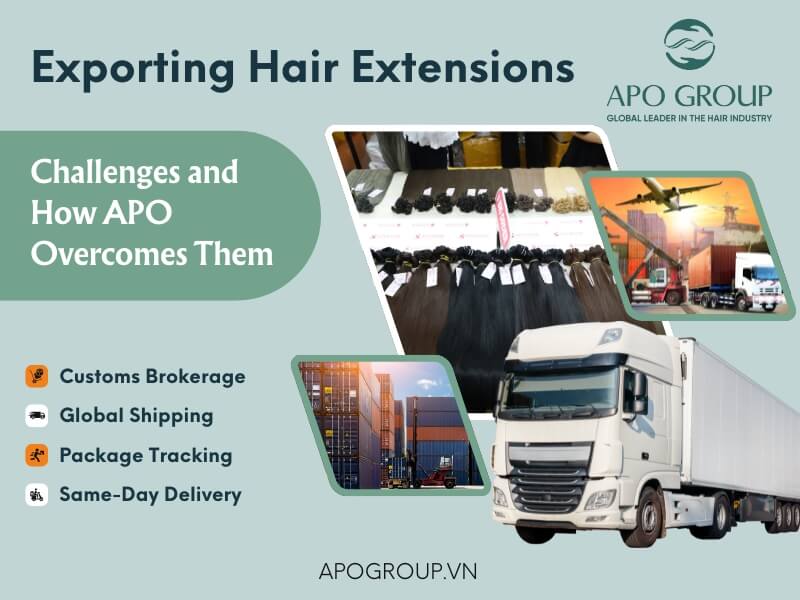
Difficulties in Hair Export
Even though the hair extension industry is booming globally, exporters face several barriers before a product reaches the end customer. Below are the most common difficulties that APOGROUP has encountered and successfully addressed.
Complex logistics
Hair extensions may not be bulky, but exporting them involves complex logistics. Shipping routes differ from region to region, and each country has its own rules for handling goods. Delays can occur due to flight cancellations, port congestion, or miscommunication between local couriers. Without a strong logistics plan, deliveries risk being late – frustrating both wholesalers and retail customers.
Customs in each market are different
Customs clearance is often the most unpredictable part of hair export. Each market, whether the United States, Europe, or Africa, has unique requirements for documentation, product categorization, and import duties. A single missing document can cause shipments to be held for days or even weeks. For hair exporters, this not only creates financial loss but also damages credibility with clients.
International standards (compliance, health & safety)
Another difficulty is meeting international standards. Markets like the EU and the US have strict regulations on product safety, chemical usage, and labeling. Exporters must ensure that hair extensions are free from harmful substances, properly packaged, and traceable. Factories that fail to pass audits or provide health compliance certificates risk losing access to high-value markets.
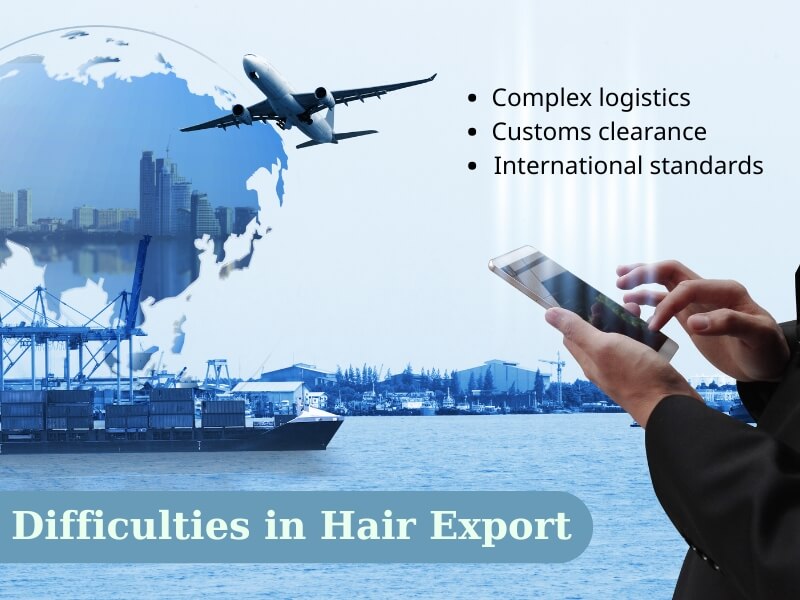
Other operational risks
- Currency fluctuations can affect costs for both exporters and buyers.
- Communication barriers may arise when working with partners across multiple time zones and languages.
- Fraudulent intermediaries sometimes pose risks, especially in markets with less regulatory oversight.
These challenges explain why many hair companies struggle to scale internationally. APO, however, has developed systems and strategies to turn these obstacles into smooth operations.
APOGROUP’s Solutions
APOGROUP’s success in global exports is built on proactive solutions. Instead of reacting to problems, the company has invested in infrastructure, partnerships, and compliance systems that minimize risk from the very beginning.
Experienced logistics team
APOGROUP maintains a dedicated logistics team with expertise in international shipping. They monitor delivery routes, optimize packaging for air/sea freight, and provide real-time updates to customers. This ensures goods arrive on time, no matter the destination.
Direct cooperation with customers on documents
To avoid customs delays, APOGROUP works closely with customers to prepare all required paperwork. This includes invoices, certificates of origin, and health compliance documents. By guiding customers through the process, APOGROUP reduces clearance issues to a minimum.
Partnership with leading international couriers
APOGROUP collaborates with globally recognized shipping partners like DHL, FedEx, UPS, and trusted local agents. These relationships guarantee reliable delivery and tracking, while also offering APOGROUP preferential rates – savings that are often passed on to customers.
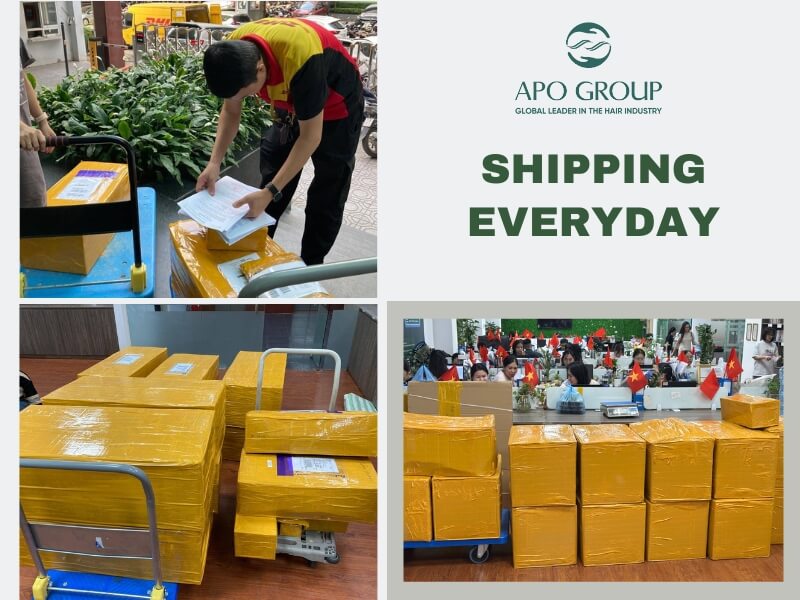
Overseas warehouses in major markets
To make hair extensions more accessible, APOGROUP has established warehouses in key partner countries such as Nigeria and Brazil. This strategy not only reduces shipping time but also lowers costs and mitigates risks associated with customs delays. Customers can receive their orders directly from a local warehouse, with the same assurance of APOGROUP’s quality.
Trade representatives in key countries
APO appoints local representatives in major markets like the USA and Nigeria. These representatives act as a bridge between customers and APO’s headquarters, offering:
- Direct support in local time zones for faster communication.
- Order assistance and after-sales service to solve issues promptly.
- Trusted payment channels to reduce financial risks.
- Market-specific advice so customers understand customs and regulations more clearly.
With these representatives, customers feel more secure, knowing APO has a reliable point of contact right in their region.
Factory audits and quality assurance
APOGROUP has invested heavily in ensuring that its factories meet global standards. By passing factory audits and maintaining international health and safety compliance, APOGROUP guarantees that all exported products are eligible for entry into high-standard markets like the US and EU.
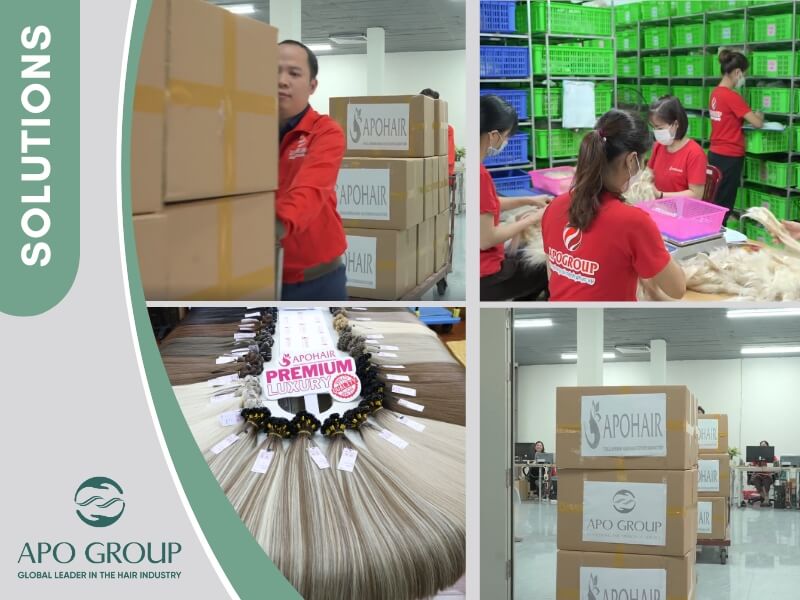
Continuous training and adaptation
The global trade environment changes constantly. APOGROUP trains its staff on updated regulations, market-specific customs, and logistics trends. This proactive approach ensures the company is always one step ahead.
Together, these solutions allow APOGROUP to transform the complex process of hair export into a streamlined, reliable service.
Case Examples
Experience is best explained through real results. APOGROUP’s export journey includes many successful cases that demonstrate how effective solutions create tangible benefits.
Successful export to Nigeria
Nigeria is one of the largest markets for hair extensions, but also one of the most challenging due to complex customs procedures. Many suppliers face long delays or shipment losses.
APOGROUP addressed this by establishing a direct warehouse in Nigeria, ensuring that customers could access products locally. This eliminated long customs clearance times and reduced overall logistics costs by up to 30% for wholesale buyers.
Saving logistics costs for customers
By leveraging its partnerships with DHL and UPS, APOGROUP negotiates favorable shipping rates. For large-volume buyers in Europe, APOGROUP has managed to reduce shipping costs by 15–20%, without compromising on speed or reliability.
These cases highlight that APOGROUP doesn’t just export hair. It delivers trust, efficiency, and value.
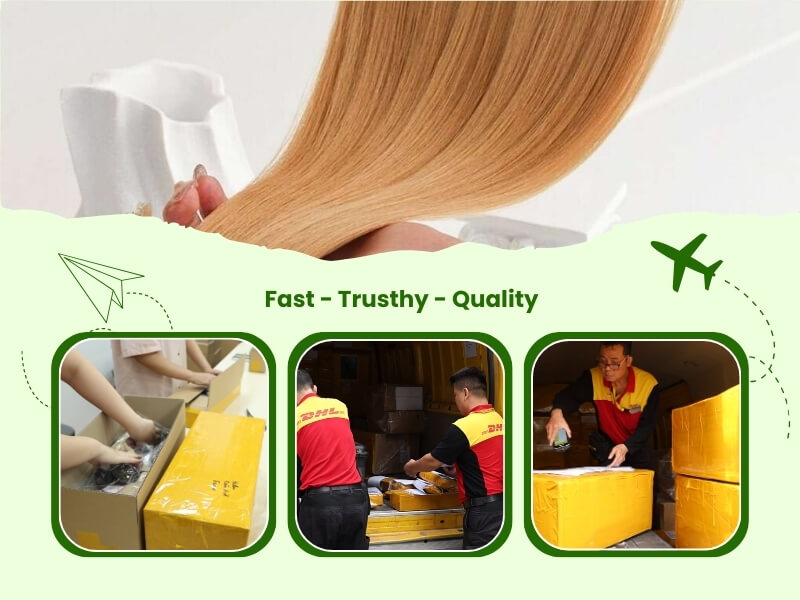
Benefits of Working with APOGROUP
For customers, partnering with APOGROUP means eliminating uncertainty in the export process. The benefits include:
- Fast delivery: Thanks to overseas warehouses, experienced logistics teams, and courier partnerships, APOGROUP ensures timely shipments.
- No risk: With full documentation, transparent sourcing, and compliance with global standards, APOGROUP minimizes risks of delays or rejected shipments.
- Guaranteed international standards: Every product comes from audited factories, meeting EU/US requirements for safety and quality.
- Cost efficiency: By optimizing logistics and offering wholesale advantages, APOGROUP helps customers save significantly on shipping costs.
- Global accessibility: Whether in Africa, Europe, or America, APO ensures customers can access hair extensions without unnecessary complications.
These advantages explain why APOGROUP has become a trusted partner for thousands of hair businesses across more than 50 countries worldwide.
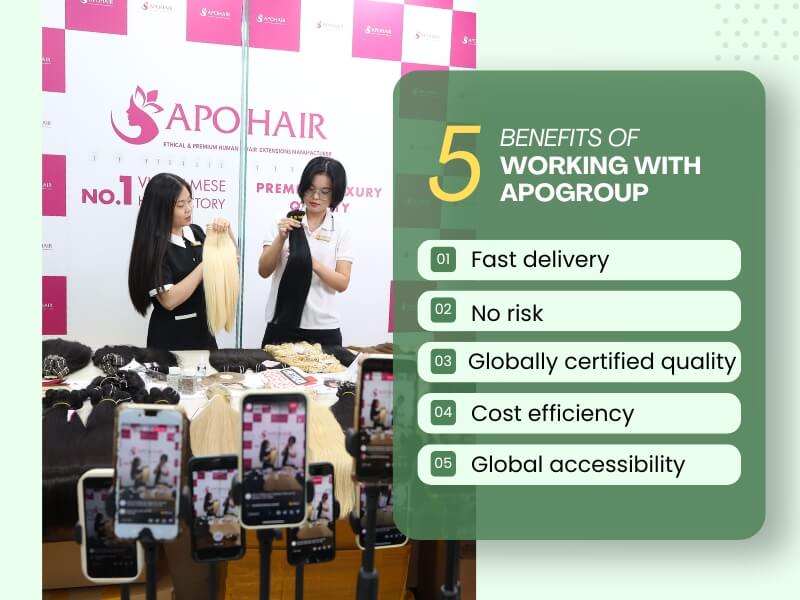
Conclusion
Exporting hair extensions is far from easy. But with the right systems, expertise, and global network, these challenges can be overcome. APOGROUP’s experience proves that exporting is not just about moving products. It’s about creating trust, ensuring compliance, and delivering consistent value to customers worldwide. By combining strong logistics, ethical practices, and global standards, APOGROUP has turned export difficulties into long-term success. Work with a partner that makes international hair trade simple and reliable. Contact APOGROUP today.
